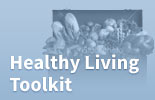Step 7
Listen to Your Body
EnergyFirst gives you a starting point.
Lifetime success with EnergyFirst will come from fine-tuning the program to suit your body. Your body is your best coach. We teach you how to listen to it and fine-tune your program based on what your body tells you.
As you progress with the Energyfirst Program, you will become more familiar with your body and its signals. Fine-tune your personal EnergyFirst Program based on what your body is telling you it needs. Some examples of feedback your body give you are:
Clear Urine
How do you know you are optimally hydrated? Your urine should reach clear or almost clear at least once every 24 hours.
Body Composition Testing.
How do you know that you are achieving your goals? Measuring your body composition is key to staying in touch with how lean you are becoming.Using skin fold calipers to test your body fat percentage and a tape measure to test your circumference , like your body, don't lie.
Training Heart Rate
The only way to know precisely that your training heart rate is within your optimum fat burning range (60-75% of your MHR) is to wear a chest strap heart monitor. An above-normal resting heart rate taken upon waking is an accurate indicator of over-training. A heart rate monitor is a precise and highly accurate way of listening to your body.
Stable Blood Sugar
Keeping your blood sugar stable and your insulin under control is of critical importance to getting lean and increasing energy. How do you know what level your blood sugar is at? Do you get sleepy, moody, or have cravings after meals? Remember: this tells you that what you ate did not maintain stable blood sugar. Evaluate what you ate. Did you eat enough? Did you eat too many processed carbohydrates or simply too many carbohydrates of any kind for your body? Did you eat enough protein and/or good fats to keep your blood sugar stable? You know you have achieved the perfect ratio of protein, fat, and carbohydrates for your body when you feel physically, mentally,and emotionally energized for 4 hours after each meal, with no cravings or hunger.
Moodiness, Depression, and Stress
Are you feeling low, depressed, negative, or stressed? Have you eaten sugar, alcohol, or processed carbohydrates? These foods block the production of feel good neurotransmitters and have a depressing effect. Have you been exercising too much? You may be overtraining. Have you been exercising too little? Exercise in the right amount promotes the release of feel good chemicals called endorphins. Have you been getting enough sleep? Your body needs to recharge and rejuvenate. Are you doing your daily positive affirmations or have you been beating yourself up? What you become what you focus upon. If you focus on negativity, you are more likely to feel depressed.
Overtraining
Are you feeling overly hungry, or lacking in appetite? Are you getting injured easily? Are you feeling tired and depressed? How intensely are you exercising? You may be working out out too hard and overtraining your body, producing excess stress hormones which encourage fat storage, suppress your immune system, increase your risk of injury, and break down of lean muscle mass.
Inflammation
Do you have any condition of inflammation: joint pain or inflammation (arthritis, tendonitis); skin conditions (eczema, psoriasis, dry or flaking skin); digestive disorders (colitis, ileitis, irritable bowel syndrome, gastric reflux); respiratory disorders (asthma, frequent colds and flu, sinusitis, upper respiratory infections)? You may be lacking in essential fatty acids: omega 3 and 6. Increase your intake of omega oil and seed mix as well as EPA/DHA (fish oil) over a 6-week period and see the results.
Food Intolerances
Many people suffer from food intolerances and allergies. What you may not be aware of is that we often crave the foods to which we are allergic! When we eat foods that we are allergic to, our bodies produce opiods, which are brain chemicals that mask the reaction to the food allergy. These opiod substances make us feel good temporarily and we easily become addicted to the affects of eating this food and therefore crave those foods! Dairy products are the most highly allergenic foods on the planet. Our bodies weren't meant--biochemically--to break down dairy products efficiently, so digestive upsets and respiratory problems such as asthma and coughs and colds are a common sign of dairy intolerance or allergy. Dairy also promotes inflammation in the respiratory tract resulting in asthma, sinusitis, colds, flu, and upper respiratory disorders. If you suffer from any of these conditions, try eliminating diary products from your diet for a period of time and re-assess how you feel. Other common allergenic foods are include gluten (found in wheat and wheat products), and soy products.
Your Daily Health Diary
Observing and recording what you notice about your body every day in your daily health diary trains you how to more affectively attune to your body. Use the EnergyFirst Daily Diary to track your meals and your body's signals. Any time you have an ache or a pain, stiffness or soreness, irregularity, a headache-these are all examples of your body telling you that something is out of balance. The answer is not to take a drug to mask the symptom, but rather to become a good detective. Slow down and think about what possible behavior could have caused the problem. Was it the wine you had last night with dinner? Maybe your body is trying to tell you that you need to cut back your alcohol consumptionr. Maybe you haven't been drinking enough water. Maybe you've let your carbohydrate intake get out of control. Maybe you're not getting enough essential fats-raw flax seed oil, raw nuts, raw seeds.
Listening to your body is one of your most powerful tools to fully understanding the self.
View Healthy Living Tool Kit
























